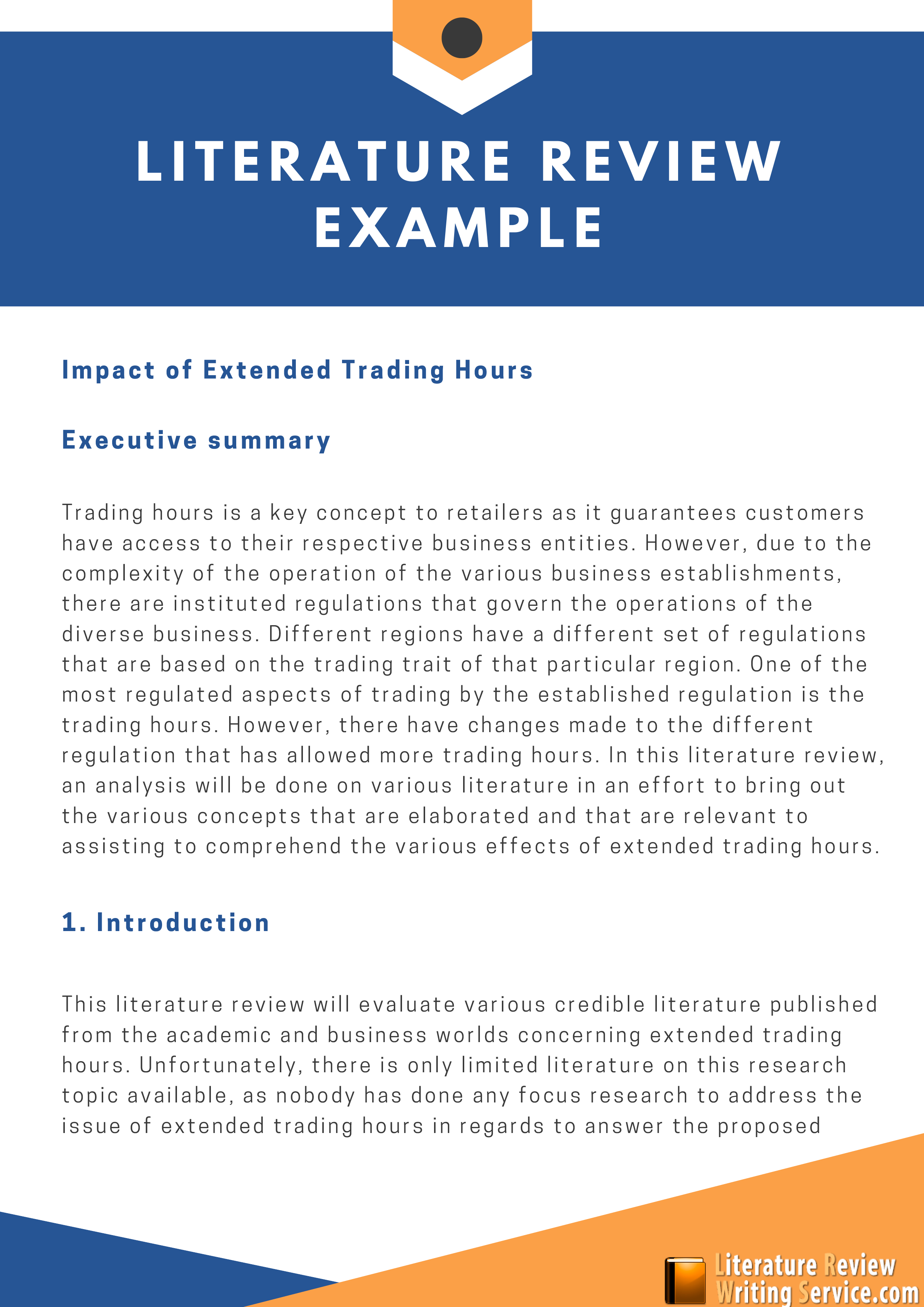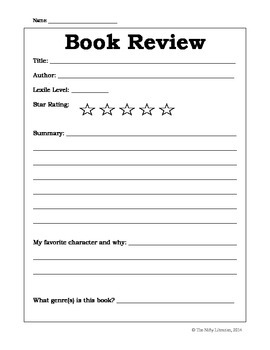
· Adhere to a particular citation style, such as Chicago, MLA, or APA. Put your name at the very end of the book review text. The basic purpose of a book review is to convey and evaluate the following: a. what the book is about; b. the expertise of the author(s); c. how well the book covers its topic(s) and whether it breaks new ground; blogger.com: Ruth Wallach Your abstract should be intelligible on its own, without a reader’s having to read your entire paper. And in an abstract, you usually do not cite references—most of your abstract will describe what you have studied in your research and what you have found and what you argue in your paper. In the body of your paper, you will cite the specific literature that informs your research Book Review Abstract This review critiques Jonathan Day’s Postcards From the Road: Robert Frank’s The Americans. Day’s account, equal parts visual project and textual exploration of Frank’s work, offers the reader a unique interpretation of Frank’s The Americans as the author ventures on a
Abstract Guidelines & Samples | UNIVERSITY of VIRGINIA PRESS
We ask that you provide an abstract for your book and an abstract for each individual chapter. Please keep in mind that providing good metadata substantially increases the visibility of your book. Please provide a description of words or less of the overall book. Please also provide a description of words or less for each chapter, including the introduction and conclusion if they appear as separate chapters.
You should include chapter numbers and titles, if applicable, in the chapter abstracts. It is best to use language that includes strong, specific references e. The book abstract and each chapter abstract must be accompanied by five keywords. In choosing keywords, it may be helpful to think in terms of an how to write an abstract for a book review and which words would be most usefully represented or consulted there.
Keeping a keyword to a single word is good where possible, but when this results in language that is too general, it should be avoided. Please submit these abstracts and keywords to your acquiring editor in a single Word document along with your final manuscript when it arrives for editing.
Susan B. Haire and Laura P. Moyer, Diversity Matters: Judicial Policy Making in the U. Courts of Appeals. Book Abstract Until President Jimmy Carter launched an effort to diversify the lower federal courts, the U.
courts of appeals had been composed almost entirely of white males. Byhow to write an abstract for a book review, a quarter of sitting judges were women and 15 percent were African American or Hispanic. Underlying the argument made by administration officials for a diverse federal judiciary has been the expectation that the presence of women and minorities will ensure that the policy of the courts will reflect the experiences of a diverse population. The first three chapters of the book trace the paths of minority and female judges to the bench and examine how group membership, status, and socialization forces shape individual judicial behavior.
The next two chapters shift to consider how gender and racial diversity affect the collective behavior of small groups and institutions. Chapter 4 evaluates how the makeup of appellate panels drives decisional outcomes, while chapter 5 looks at the ways that changing norms and critical actors affected how individual courts experienced judicial diversification.
Looking forward, the authors anticipate the ways in which these process effects will become more pronounced as a result of the highly diverse Obama appointment cohort. Book keywords: judicial behavior; U. courts of appeals; women judges; minority judges; judicial diversity. Chapter Abstract Chapter 4: Diversity on the Panel This chapter examines how gender and racial diversity on appellate panels affects deliberative processes. Another perspective suggests the presence of nontraditional judges will enhance the robustness of information processing in deliberations.
The analysis provides support for the premise that diverse panels yield opinions with more points of law when compared to those produced by panels composed of only white males. However, this effect held only if two of the three panel judges were nontraditional judges. Chapter keywords: deliberations; nontraditional judges; majority opinion; appellate panels; gender and racial diversity. Book Abstract This book explores the quarter century between andwhen Americans crafted a new manner of living that shaped and reshaped how residential builders designed and marketed millions of detached single-family suburban houses.
These dwellings were the basic building blocks and the single most important components of the explosive suburban growth during the postwar period, luring families to the metropolitan periphery from both crowded urban centers and the rural hinterlands. Favorable government policies, and sympathetic and widely available print media such as trade journals, popular shelter magazines, and newspapers, emboldened the residential building industry while informing the public of these new possibilities.
Keywords: detached single-family houses; spatial evolution; consumer culture; casual living; middle class. Residential builders and their industry attained a new level of national prominence and cohesion through energetic and unrelenting self-promotion and product marketing.
Builders commenced their postwar activities in a manner closely circumscribed by government policies put into place by the Federal Housing Administration FHA. Keywords: residential building industry; Federal Housing Administration FHA ; home advertisements; model houses; National Home Week. University of Virginia Press P, how to write an abstract for a book review.
Box Postal Sprigg Lane Courier Charlottesville, VA Skip to main how to write an abstract for a book review. Abstracts Please provide a description of words or less of the overall book. Keywords The book abstract and each chapter abstract must be accompanied by five keywords.
Examples of book and chapter abstracts, including keywords, are provided below. SAMPLE ABSTRACT 1 Susan B. Courts of Appeals Book Abstract Until President Jimmy Carter launched an effort to diversify the lower federal how to write an abstract for a book review, the U.
courts of appeals; women judges; minority judges; judicial diversity Chapter Abstract Chapter 4: Diversity on the Panel This chapter examines how gender and racial diversity on appellate panels affects deliberative processes.
Chapter keywords: deliberations; nontraditional judges; majority opinion; appellate panels; gender and racial diversity SAMPLE ABSTRACT 2 James A. Jacobs, Detached America: Building Houses in Postwar Suburbia Book Abstract This book explores the quarter century between andwhen Americans crafted a new manner of living that shaped and reshaped how residential builders designed and marketed millions of detached single-family suburban houses.
Academic Writing Abstract/Conference paper/ Chapter/Book writing Part 1
, time: 12:00How to Write an Abstract for Literature Review?

· Adhere to a particular citation style, such as Chicago, MLA, or APA. Put your name at the very end of the book review text. The basic purpose of a book review is to convey and evaluate the following: a. what the book is about; b. the expertise of the author(s); c. how well the book covers its topic(s) and whether it breaks new ground; blogger.com: Ruth Wallach · Writing chapters for an edited book is one of many types of academic writing. Writing a chapter for an edited book is no less than writing a scholarly paper in terms of quality barring some presentational aspects. Writing an acceptable abstract is the first step towards getting an invitation to write a full-text chapter by the book's editors · Writing an Abstract for Literature Review. Before a researcher or an academic writer starts to become familiar with how to write an abstract for literature review, one should first be familiar with what exactly qualifies as a Literature Review. While writing a research paper or dissertation, the literature review is the portion where you brief the guidance counselor – also referred to as a Project

No comments:
Post a Comment